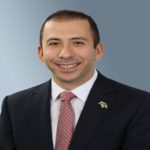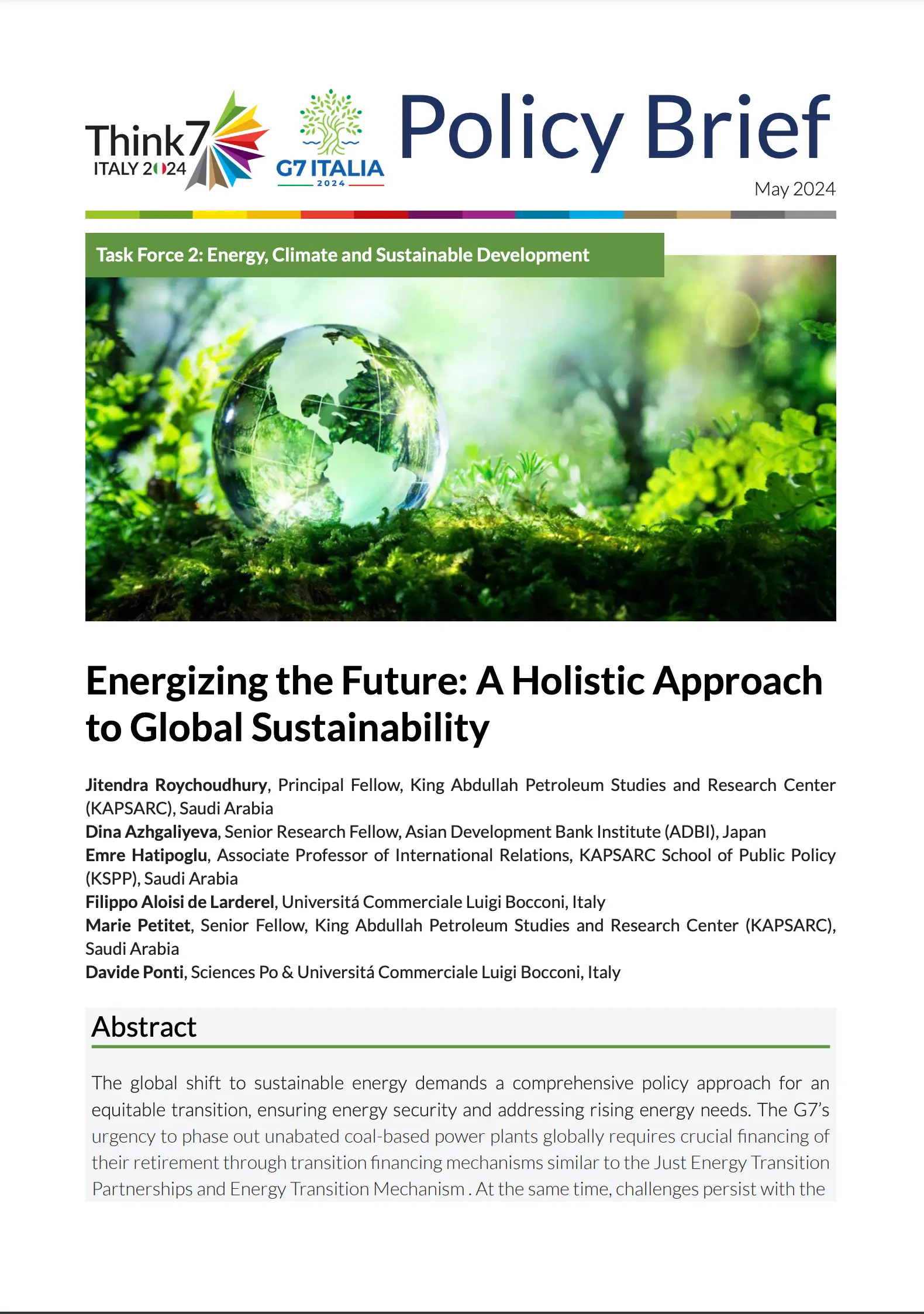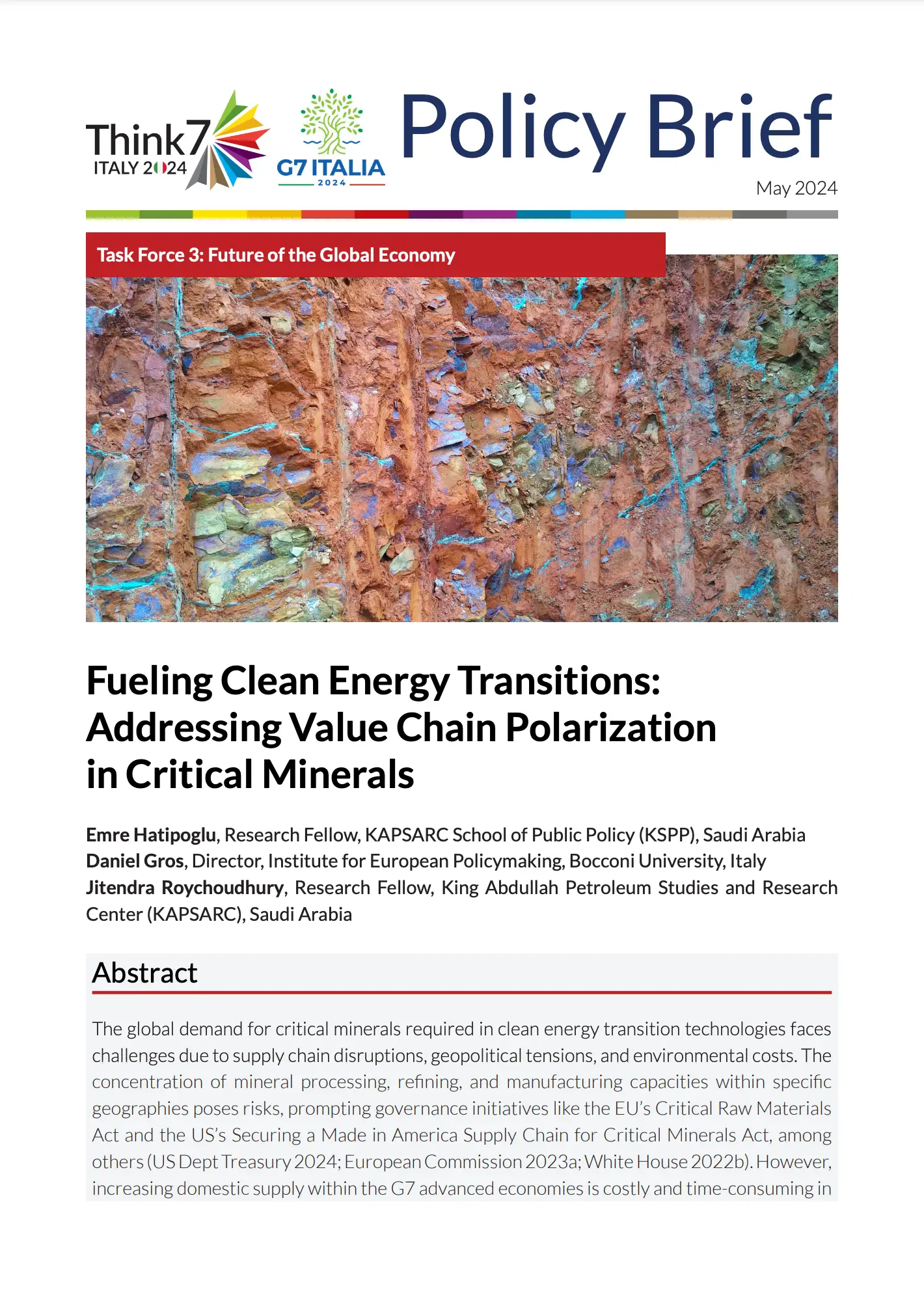Director of Strategic Partnerships
Brian Efird is the Director for Strategic Partnerships at KAPSARC. His responsibilities include planning and oversight of KAPSARC’s global outreach…
Brian Efird is the Director for Strategic Partnerships at KAPSARC. His responsibilities include planning and oversight of KAPSARC’s global outreach and engagement, as well as forging multiparty collaborations that conceptualize and facilitate high impact, applied research projects in the areas of energy economics, policy, and sustainability. He previously served as the Program Director for Policy and Decision Science, managing a team of researchers that covered a global program of work focused on the nexus between geopolitics, domestic and local politics, energy, and climate change. This included multi-disciplinary analysis of the geopolitics of energy and the environment, quantitative models of collective decision-making processes (CDMPs), geospatial information system (GIS) applications to energy economics and energy policy, and the impact of political phenomena on global energy markets.
Dr. Efird was previously a Senior Research Fellow at the National Defense University in Washington, D.C.; a consultant on defense and international security matters in Washington; and a consultant applying quantitative models to support corporate, investment banking, and legal negotiations in New York. He received a Ph.D. in Political Science and M.A. in International Studies from Claremont Graduate University.





